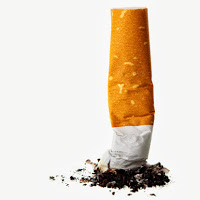While there has been a significant drop in the popularity of smoking., about 18 percent of Americans continue to smoke and it remains the leading cause of preventable death and disease in the United States.
Smoking can lead to 14 different types of cancer, including lung, pancreatic and stomach. Given these statistics, it’s not surprising that almost 70percent of smokers report wanting to quit.
It’s not an easy habit to break, but it can be done. Here, Timothy Cline, M.D.,a director at UPMC Health Plan and a leading smoking cessation expert, answers questions about how and why smokers can kick the habit.
What are the benefits of smoking cessation?
Some people think they’ve smoked for so long that quitting now is pointless. However, the health benefits of quitting begin almost immediately, regardless of how long they have been smoking. According to the American Cancer Society, within 20 minutes of quitting, your heart rate and blood pressure will drop. You’ll be breathing easier as early as one month after quitting thanks to decreased coughing and shortness of breath. Soon after quitting, you also are likely to discover that food tastes better, and you have more energy to enjoy physical activities. One year of being smoke free means your risk of coronary heart disease is half that of a continuing smoker’s. Everyone who gives up cigarettes can experience these benefits, no matter how long they’ve been smoking, and they only increase as you spend more time smoke-free.
Are e-cigarettes a healthy alternative to regular cigarettes? What about light or organic cigarettes?
Many people switch to light, natural or electronic cigarettes because they think these are safe alternatives to traditional cigarettes. Unfortunately, while light and organic cigarettes definitely sound friendlier, they do not present a lower risk for disease than regular cigarettes and have been found to be just as harmful. As for e-cigarettes, the FDA hasn’t studied them enough to know just how harmful they may be, but users do in fact inhale toxins when smoking them. Rather than switching to these types of cigarettes, users aiming to make a healthy change in their smoking habits should focus on quitting altogether.
I’ve been hearing a lot about third-hand smoke. What is it?
Smoking can lead to serious health issues and premature death. Even breathing in second-hand smoke — smoke from someone else’s cigarette — can cause you serious harm. What many people don’t know, though, is thateven after a cigarette is rubbed out or you distance yourself from someone smoking, toxins from the smoke linger on all the surfaces exposed to tobacco smoke. That means if you stand next to someone smoking, toxic residues will cling to you and your clothes long after you’ve left the smoky area and can be transferred to anyone or anything you come in contact with. A recent study at Lawrence Berkley National Laboratoryfound that some of the toxins in third-hand smoke can damage the DNA inside human cells, which can lead to the development of cancerous tumors in the body.
Fact or Fiction: Is it common for individuals to gain weight after quitting smoking?
Fear of weight gain is one of the most common reasons smokers hesitate to kick the habit, but giving up smoking doesn’t have to mean picking up pounds. With a nutritious diet and regular exercise, excessive weight gain is avoidable. Some experts recommend developing these healthy habits before quitting so they are already formed when it’s time to quit. And while many people who quit smoking do gain a few pounds (especially within the first few months of quitting), the risks associated with this slight increase are not nearly as threatening as those associated with smoking.








